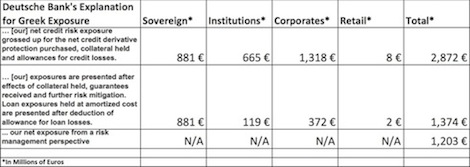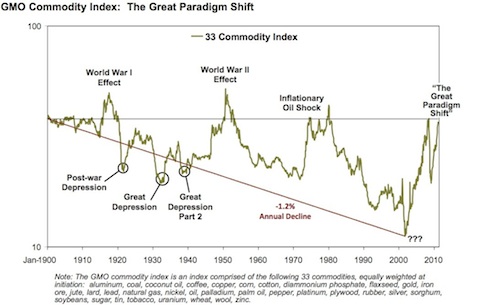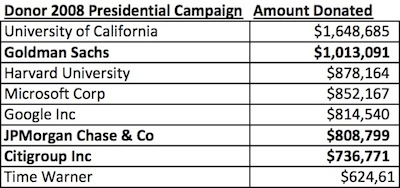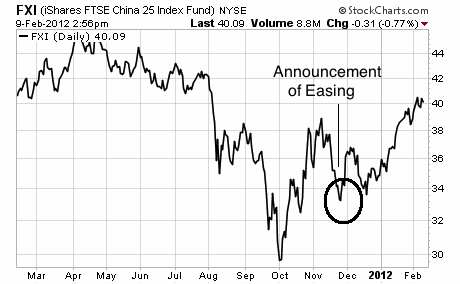Graham’s note: the following is an excerpt from a recent issue of my Private Wealth Advisory newsletter with some additional research I did on the economy of Greece.
The Greeks have no idea what they’ve gotten themselves into.
A few facts about Greece…
First off, demographics wise, Greece is a disaster.
Real Clear Markets shares the following facts.
- Greece’s fertility rate is 1.3 children per women. This is nearly a full child below the “replacement rate”: the number of children needed to maintain the current population.
- Greece’s population of 65 and over has soared from 11% in 1970 to 24% in 2010. It will hit 33% by 2050. Meanwhile, Greece’s working population will decline to 20% over the same time period.
- Because of this, Greece spends 12% of its GDP on pensions.
As if this weren’t bad enough, the unemployment rate for Greeks aged 15-24 is 40%. For Greeks aged 24-34 it’s 22%. Imagine being a young person, not being able to find a job, and then knowing that huge percentage of your efforts (42%) are going to be taxed to fund all the crazy social welfare programs for Greece’s aging population. Small wonder that seven out of ten young Greeks want to work abroad and four of out ten are actively seeking work outside of Greece.
Also, it’s no surprise that those Greeks who do have jobs, don’t want to pay this massive tax load. Consider that the Greek working population is roughly seven million people. 95 percent of them declare annual income of less than 30,000 euros.
So that’s the situation in Greece. Terrible age demographics, an economy that’s in the toilet, and politicians who simply don’t get it.
Now let’s consider who’s actually got the cash to potentially help Greece from a default, and what they want in return.
We’re talking about Germany.
For most of the Greece Crisis, the supposed “saviors” were the IMF, the ECB, and Germany. That all changed in the last month. The IMF has called for more funds. Those funds aren’t coming. Remember, the IMF is largely a US-backed organization. And the US sure as heck won’t go for a US-backed bailout of Europe.
So the IMF is out of the picture in terms of helping Greece in any meaningful way.
Now, how about the ECB? Well Germany has told the ECB to its face that if it continues to monetize EU sovereign bonds that Germany will walk out on the Euro. So the ECB may continue to meddle in the bond market to avert a Crisis, but if it ever decides to publicly state it will be monetizing EU debt going forward, Germany’s out and the Euro implodes.
Which leaves Germany as the official backstop/ savior for Greece. And here’s how Germany recently address the IMF when the IMF asked Germany for help with the Greek situation.
Berlin resists pressure to give Greece more
Germany, the biggest and richest country in the euro zone, has provided the bulk of the funds for the bailouts of Ireland, Portugal and Greece. Now it is firmly rejecting calls to come up with yet more funds for Greece to compensate for any shortfalls in a debt relief deal with private creditors.
On Friday Foreign Minister Guido Westerwelle defended Berlin’s tough stance. The Greeks, he insisted, should show that they are willing to implement reforms before getting more money.
“We Germans do not expect from anyone in Europe more than what we are asking from our own citizens. We cannot explain to taxpayers in Germany that they have to do things that others do not want to do while at the same time asking for their money,” Westerwelle said in Brussels.
He pointed out that Germany had already come up over 200 billion euros ($262 billion) for the bailout funds. “It makes no sense” he said, to give more money to Greece, “if we don’t know whether the reforms which have been agreed upon will be really implemented.” He argued that coming up with more money just lessened the pressure to reform.
http://www.globalpost.com/dispatch/news/regions/europe/germany/120127/berlin-resists-pressure-give-greece-more
Diplomatically, this is about as close as Germany can come to telling the IMF to “stuff it.” Germany knows the IMF doesn’t have the funds and won’t be getting them (the IMF is primarily a US-backed entity and the US won’t stand for a US-backed European bailout).
Indeed, just a few days after Germany said “nein” to more Greece bailouts, it then threw the following suggestion out:
German proposal seeks EU commissioner with sweeping powers to directly control Greece’s budget
Germany is proposing that debt-ridden Greece temporarily cede sovereignty over tax and spending decisions to a powerful eurozone budget commissioner before it can secure further bailouts, an official in Berlin said Saturday.
The idea was quickly rejected by the European Union’s executive body and the government in Athens, with the EU Commission in Brussels insisting that “executive tasks must remain the full responsibility of the Greek government, which is accountable before its citizens and its institutions.”
http://www.washingtonpost.com/business/markets/german-proposal-seeks-eu-commissioner-with-sweeping-powers-to-directly-control-greeces-budget/2012/01/28/gIQAxHWgXQ_story.html
In plain terms, push has now to come shove in Europe. Germany permitted the ECB to implicitly monetize various EU sovereign nations’ debts during 2011 because Germany hadn’t yet taken the steps to prepare for a collapse of the EU.
It now has. In the last six months, Germany has:
1) Passed legislation permitting it to leave the Euro without leaving the EU.
2) Passed legislation permitting it to nationalize German banks during times of Crisis.
3) Demanded that German banks in general raise capital.
In plain terms, Germany is now prepared to walk if it has to. And it’s made its demands very clear: if you want German funds, you will need to give up fiscal sovereignty.
It’s also made it clear that it will tolerate neither the issuance of Eurobonds OR direct and open monetization by the ECB.
In other words, Germany has said “it’s our way or the highway.” True, this borders on an act of financial warfare, but in the end, Germany has never truly been interested in a monetary union so much as a political union.
Germany will not suffer inflation (they’ve seen how monetization works out, e.g. Weimar), nor internal discord (in November 78% of Germans thought the Euro would survive… by December 60% of them though the Euro was a “bad idea”.) Germany is going to look after its own domestic interests.
Put another way, if Greece wants to remain Greece it’s no getting any more funds and its bond markets will implode. The alternative is that if Greece wants German funds, it’s going to have to give up its fiscal sovereignty and essentially become a vassal state for Germany. End of story.
With that in mind, I believe the next round of the Euro Crisis is now at our doorstep. Indeed, this latest short-covering rally in the Euro (Euro shorts were at a record high) looks ready to end and reverse.
So if you think the EU Crisis is over, think again. True we’ve got until March 20th for the Greek deal to be reached, but things have already gotten to the point that Germany has essentially issued its ultimatum. Either Greece hands over fiscal sovereignty, or it defaults in a BIG way.
If you’re looking for actionable advice on how to play the markets as well as real-world business ideas on how to generate wealth in this tough economy, I suggest checking out my Private Wealth Advisory newsletter.
Private Wealth Advisory is my bi-weekly investment advisory published to my private clients. In it I outline what’s going on “behind the scenes” in the markets as well as which investments are aimed to perform best in the future (both in the capital markets and in the real world economy).
My research has been featured in RollingStone, The New York Post, CNN Money, the Glenn Beck Show, and more. And my clients include analysts and strategists at many of the largest financial firms in the world.
To learn more about Private Wealth Advisory and how it can help you navigate the markets successfully…
Click Here Now!!!
Graham Summers
Chief Market Strategist










